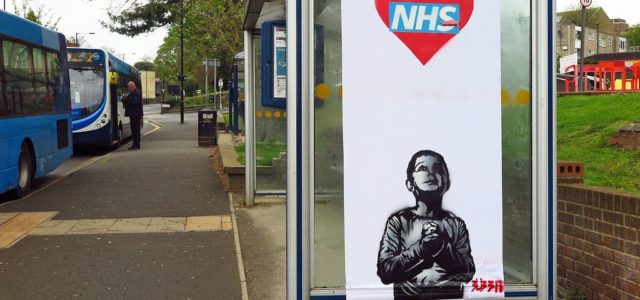Louise Reardon and Greg Marsden
At the height of the pandemic in the UK, the government order was to ‘stay home, protect the National Health Service, save lives’. The public were told not to travel to their place of work unless that work was essential (and couldn’t be done from home), told not to leave the house for anything but essential groceries, medication or to support the vulnerable, and in doing so advised not to travel on public transport unless there was no alternative. As a consequence travel demand plummeted: motor traffic down by 73% compared to pre-outbreak levels, rail journeys down 90%, London Underground journeys down 94%, and bus journeys in London down 83%. While the current context is very different to the one in which we wrote our new Policy & Politics article, it highlights the puzzle that initially caught our attention.
These are extraordinary and very challenging times, but what these journey numbers show is that when it wants to, national government can play a very influential role in determining how and when people travel. Indeed, we know that in normal times government plays a subtle yet significant role in influencing demand for travel. One of the key ways it does so is through increasing capacity – providing more infrastructure. Successive studies have shown that increasing capacity induces demand – the more roads we build, the more we travel, soon filling those roads (usually with cars). This induced demand is important, because more demand leads to more air pollution, congestion, and expense at a time of climate change emergency. Moreover, it appears that lessons learnt by the Conservative government of the early 1990s have been forgotten by today’s administration.
Having largely accepted in the early 1990s that increasing road capacity induced demand (and puts more cars on the road), and that meeting this demand through new infrastructure was unaffordable, and counterproductive to achieving climate change goals, the current government was, as recently as 12th March, committed to embarking on the country’s largest ever road building programme. One of its key arguments for doing so being that we need to accommodate future travel demand and that doing so will stimulate the economy. It is this circularity that we explore in our new article: Exploring the role of the state in the depoliticisation of UK transport policy.
In short, what our research finds is that government acts as if more demand for travel is inevitable when we know it is not, and that it behaves like it doesn’t have an influence over this future predicted demand when we know it does. We argue that it is able to do this, and in turn bring forward an infrastructure-led transport policy with little political backlash, due to the legacy of the deployment of successive depoliticisation strategies over the past three decades. These strategies have been implemented as a tool of and/or response to, governmental action facilitated by a desire to shift the political agenda and avoid conflict.
In turn, these processes have meant that over the long term, issues that were once closely associated with expanding road infrastructure capacity, such as growth in car travel, congestion, and other negative externalities for climate change, have become largely disassociated politically. While, at the same time, encouraging demand for travel has become politically wedded to sustaining economic growth. In drawing these conclusions, our article highlights the value of assessing depoliticisation processes over an extended period of time due to the parallel and interweaving nature of (re)depoliticisation processes and the role of the state in shaping these processes.
As lockdown restrictions begin to ease, we are entering a new phase in which there is the potential for travel demand to be repoliticised as an issue, with previous norms and agendas potentially reformulated or undermined. For example, to support movement to ‘phase 2’ of lockdown, the government is encouraging people to continue to work from home where they can (reducing travel demand), and investing in walking and cycling infrastructure, to encourage a shift in demand from cars towards more active travel modes.
Political support for these policies is particularly acute in the short term for people who do not have access to cars and rely on a public transport service that is now only able to run at 15% of its previous capacity due to public safety concerns. However, the processes, frameworks and assumptions that have embedded growth in road expansion (and car demand) as an inevitable good for the economy will not melt away. Stimulus funding for roads to ‘get Britain moving again’ and ‘come out of this fighting’ are also being put forward. The extent to which these policy positions can and will co-exist into the long term, and in turn potentially change the logics of transport policy, can only be known in time. However, analysing these changes will offer further insights into the utility of depoliticisation as a branch of public policy research.
Louise Reardon is Lecturer in Governance and Public Policy at the Institute of Local Government Studies, University of Birmingham. Greg Marsden is Professor of Transport Governance at the Institute for Transport Studies, University of Leeds.
Image: Tim Dennell.
